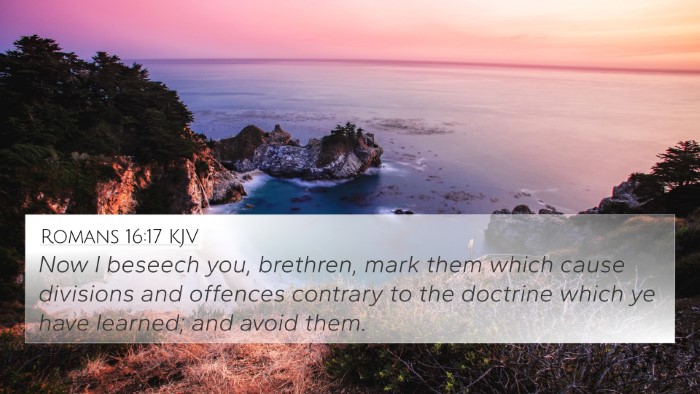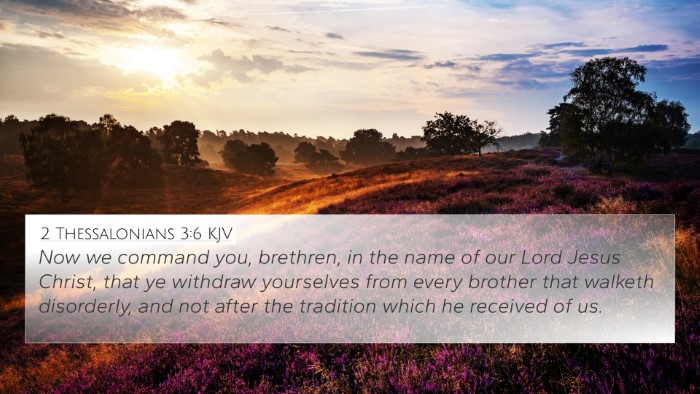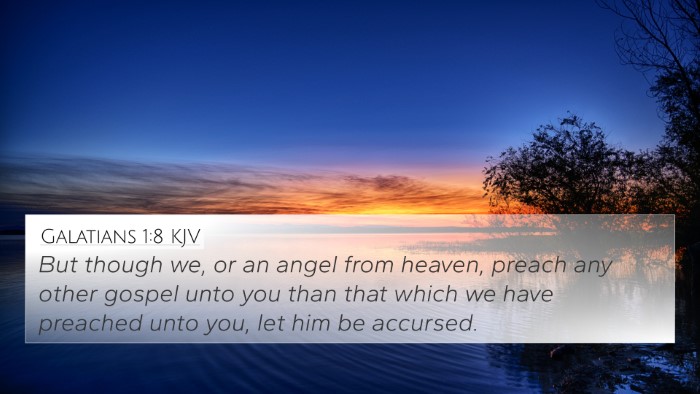Understanding 2 John 1:10
Verse: “If there come any unto you, and bring not this doctrine, receive him not into your house, neither bid him God speed:” - 2 John 1:10 (KJV)
Summary of Meaning
This verse teaches the importance of doctrine in the Christian faith. John warns believers against accepting those who do not adhere to the teachings of Christ. The emphasis here is on the potential dangers of receiving false teachers, showcasing the imperative for discernment, especially in the context of hospitality and community.
Contextual Analysis
In the context of 2 John, the apostle John is addressing a church or a woman who has been leading a congregation. He emphasizes the significance of truth and the need to protect the community from false doctrine. This warning resonates with the broader teachings found throughout the New Testament regarding false prophets and doctrines.
Insights from Public Domain Commentaries
- Matthew Henry: He notes that this verse serves as a practical guideline for Christian living. By highlighting the importance of not welcoming those who teach contrary to the essential doctrines, Henry reinforces the notion that moral and spiritual integrity must be maintained within Christian fellowship.
- Albert Barnes: Barnes elaborates on the concept of avoiding hospitality towards those preaching falsehoods. He underscores the balance between love and truth, indicating that while we are to be loving, we should not compromise the truth of the Gospel for the sake of kindness.
- Adam Clarke: Clarke points out that the overarching theme in John's writings is the adherence to the true Gospel of Christ. He warns about the implications of entertaining false teachers, suggesting that doing so could signify a tacit agreement with their errors.
Thematic Connections
This verse connects with several overarching themes within the Bible:
- Discernment in Leadership: John’s insistence on doctrinal purity emphasizes the need for careful decision-making in church leadership.
- Truth vs. Error: This passage highlights the ongoing struggle between truth and false teaching, a common motif in the New Testament.
- Community and Isolation: The verse speaks to the necessity of protecting the community from dangerous teachings.
Bible Cross-References
The following verses relate to the theme of discernment and the rejection of false doctrine:
- 1 John 4:1: “Beloved, believe not every spirit, but try the spirits whether they are of God: because many false prophets are gone out into the world.”
- Matthew 7:15: “Beware of false prophets, which come to you in sheep's clothing, but inwardly they are ravening wolves.”
- Titus 3:10: “A man that is an heretick after the first and second admonition reject.”
- Acts 20:29-30: “For I know this, that after my departing shall grievous wolves enter in among you, not sparing the flock.”
- Galatians 1:8: “But though we, or an angel from heaven, preach any other gospel unto you than that which we have preached unto you, let him be accursed.”
- 2 Corinthians 11:13-15: “For such are false apostles, deceitful workers, transforming themselves into the apostles of Christ.”
- 2 Peter 2:1: “But there were false prophets also among the people, even as there shall be false teachers among you, who privily shall bring in damnable heresies.”
Inter-Biblical Dialogue
John’s instruction in 2 John 1:10 contributes to the larger conversation found throughout Scripture regarding the nature of truth and the necessity of vigilance within the community of believers. Understanding these teachings can provide depth and alignment in study and meditation, enhancing the believer’s spiritual journey.
Conclusion
In sum, 2 John 1:10 serves as a foundational reminder of the importance of discernment in Christianity. By adhering strictly to the teachings of Christ and rejecting any falsehoods, believers foster a robust faith community. Such insights from various commentaries highlight the multifaceted approach needed when engaging with Scripture, especially concerning false teachers.













